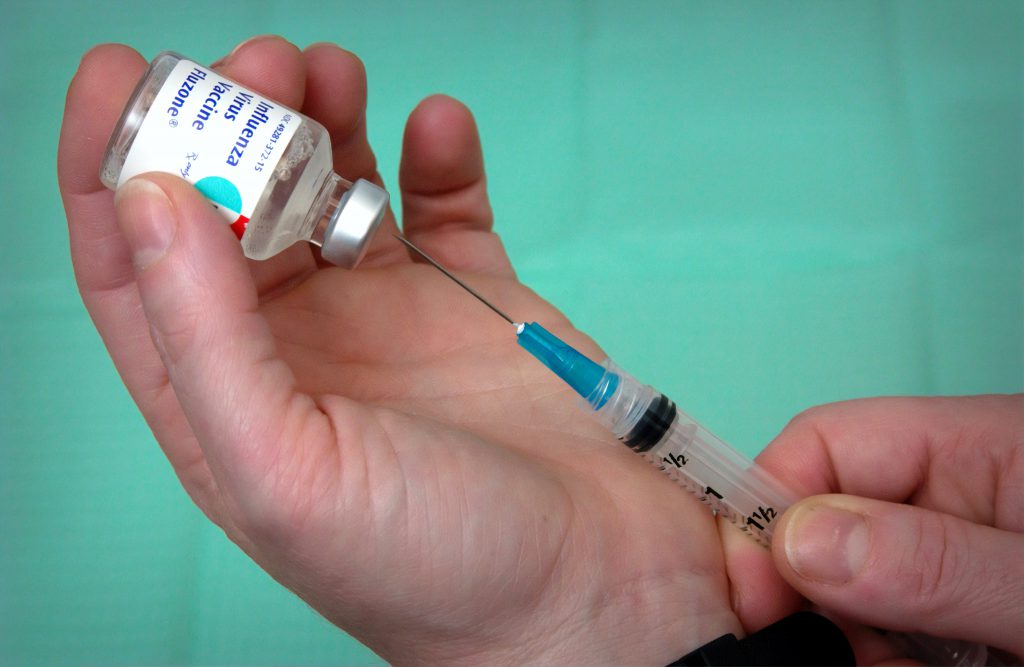It is widely accepted that the only way to reduce the morbidity and mortality from the COVID-19 pandemic will be to develop and globally release effective vaccines. The normal pathway to an approved vaccine is as follows: Phase 1 (where a small group of healthy people receive the vaccine to test its safety), Phase 2 (a larger group of people receive the vaccine to test its safety, but the people have some characteristics that would be similar to those receiving the actual vaccine – for example, people of older age or with other health issues), and Phase 3 (a much larger study where thousands of people receive the vaccine, and it is tested for safety, but also efficacy – how well the vaccine actually works to prevent the disease).
This is the current path for the vast majority of potential vaccines for COVID-19. However, the Phase 3 aspect of the traditional path for vaccine approval takes a long time, and there is a concern about the number of lives lost due to COVID-19 while the vaccines are in Phase 3 trials.
There is a potential alternative to the traditional Phase 3 path for vaccine development, known as controlled human challenge trials. A paper has recently been published from a group of researchers at Rutgers University, the Harvard School of Public Health, and the London School of Hygiene and Tropical Medicine with this method. These researchers argue that this specific type of study, even with the increased risk inherent to this method, may be acceptable in the face of this current global pandemic to bypass Phase 3, and get vaccines approved faster.
For COVID-19, a human challenge study would consist of healthy volunteers (young adults without chronic health conditions and at low risk of complications or death from COVID-19), who have not previously been infected with COVID-19, and who are at high risk of natural exposure to COVID-19 in their everyday life. The volunteers would then be randomized to get either the vaccine or a placebo. After enough time had passed to have a full immune response to the vaccine, they would be given a controlled exposure to COVID-19. After this “challenge”, the participants would be observed to see whether those who received the vaccine had a different response to the COVID-19 exposure compared to those who received the placebo.
If any of the participants did become infected, they would need to be isolated and given appropriate care. The benefit to this type of study is that if a vaccine candidate was shown to be effective after the COVID-19 challenge, then a placebo-controlled study could be conducted in the field (like a normal Phase 3 study), but at a rate several months faster than the traditional vaccine approval path. Since challenge studies directly expose all participants to the disease, they need fewer participants and a shorter follow-up time than normal Phase 3 studies, in which many participants are never exposed to the disease.
There is an incredibly high risk for this type of trial. The volunteers would need to accept an inherent risk of severe illness or death due to being directly infected with COVID-19. However, these participants would be very healthy and at low risk for severe complications or mortality from COVID-19. They would also be at high risk for contracting this disease in their daily lives anyway and would be giving their full voluntary consent to take on these risks to be part of the challenge trial.
The researchers argue that without an effective vaccine, the death toll from COVID-19 will be staggeringly high. If the human challenge trial would be able to make a vaccine available earlier than with the traditional path, then so many lives around could be saved/improved, many more than the potential lives affected by the trial. The final statement by the researchers suggests creating a group of experts to evaluate whether human challenge trials for COVID-19 are justifiable since they could potentially speed up the development of a vaccine.


